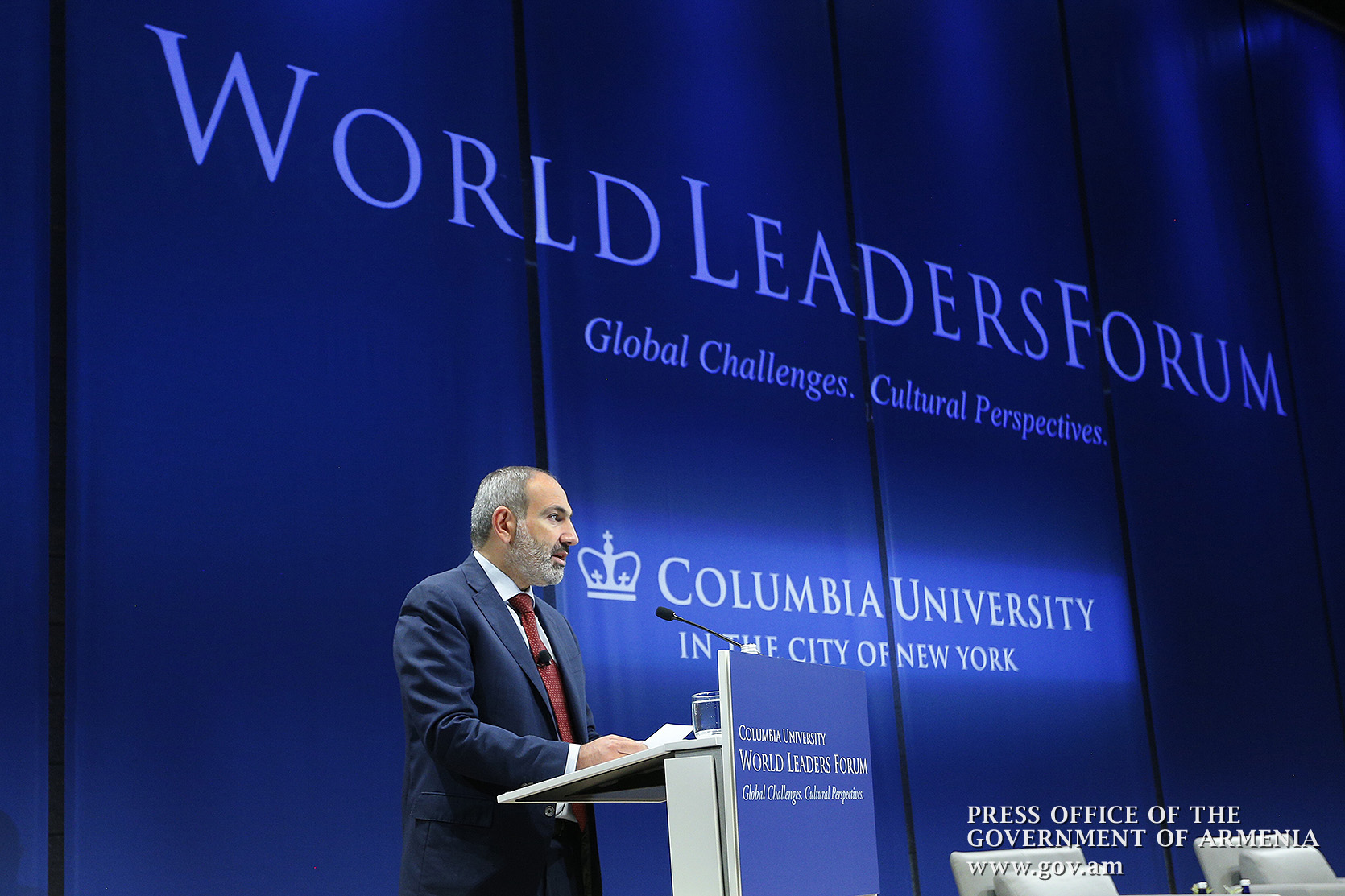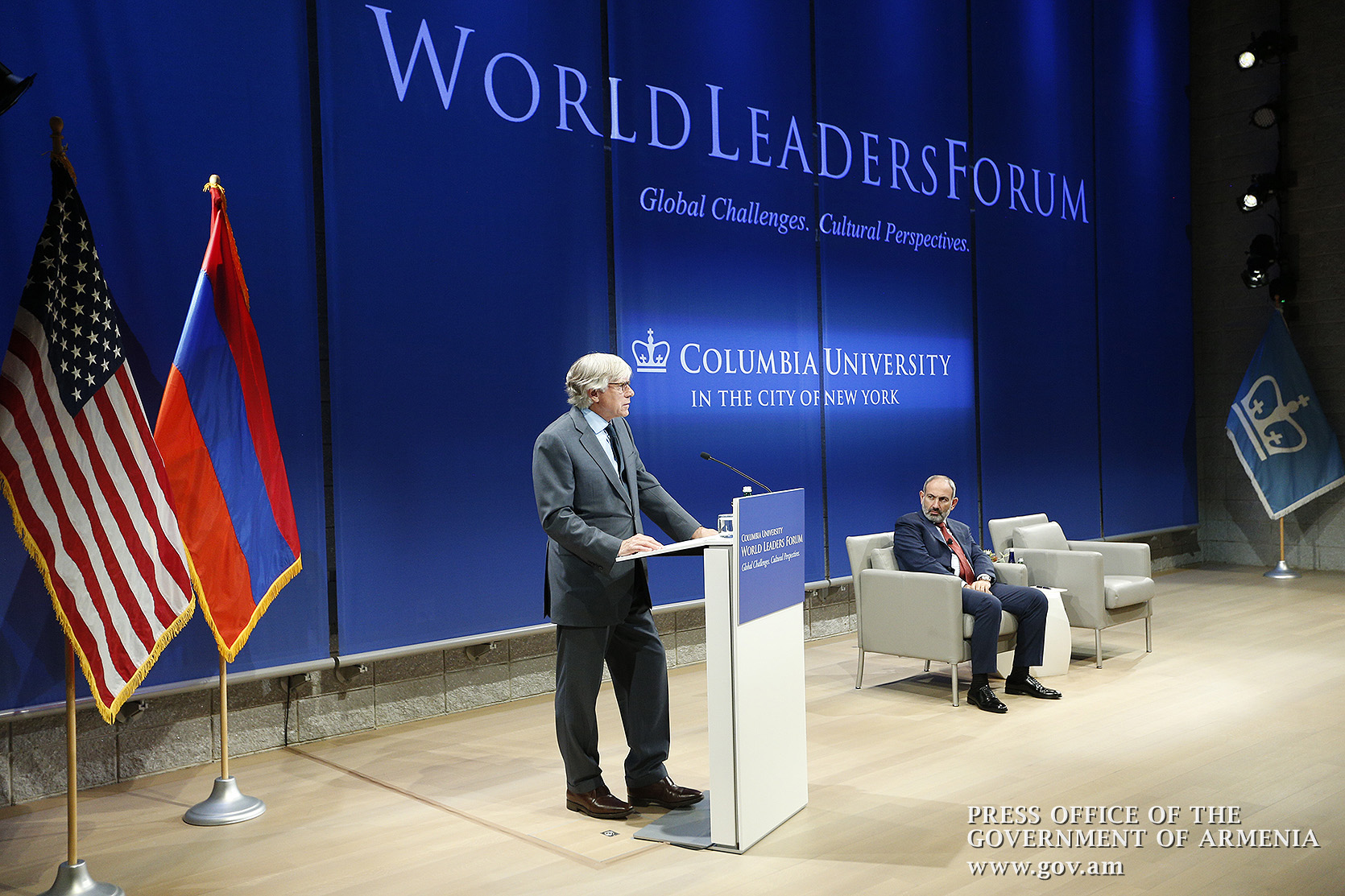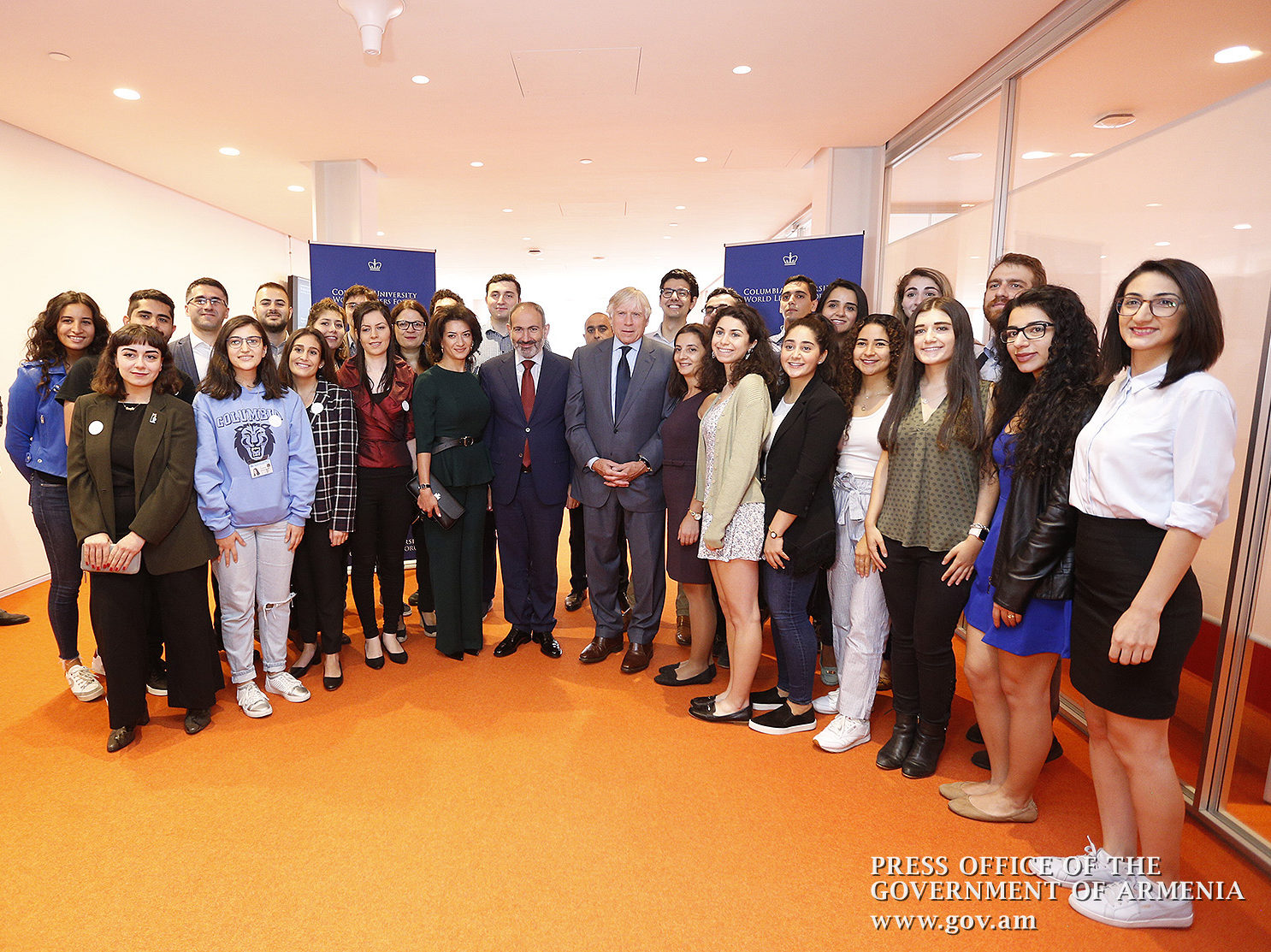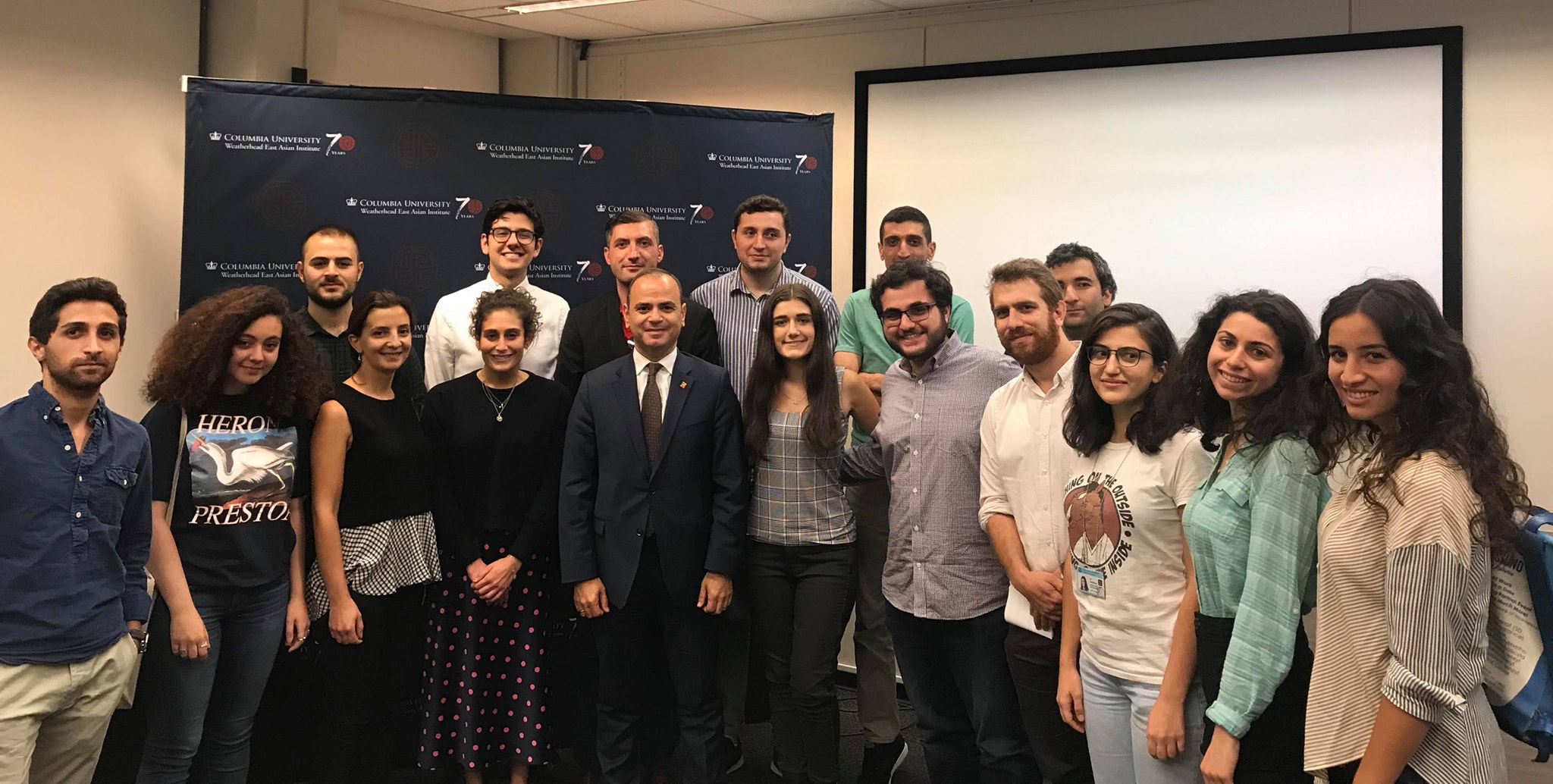 NEW YORK, NY—Armenia’s Prime Minister Nikol Pashinyan delivered a speech on his government’s foreign and domestic policies at Columbia University on September 25.
NEW YORK, NY—Armenia’s Prime Minister Nikol Pashinyan delivered a speech on his government’s foreign and domestic policies at Columbia University on September 25.
Co-sponsored by the Harrimann Institute and the Department of Middle Eastern, South Asian and African Studies (MESAAS), the event was part of the university’s annual World Leaders Forum. This year, there were also speeches by President Barham Salih of Iraq, President Paul Kagame of Rwanda, and President Salome Zourabichvili of Georgia, among others.
During his introduction of the Prime Minister, Columbia University president Lee Bollinger said, “His story—his formative years as a journalist, and his rise to the Armenian premiership—is one of struggle, persistence and grit.”

Pashinyan began his speech noting that the university “carries a special meaning for the Armenians, who have had a presence on this campus for over a century.” He acknowledged, in particular, the role of the university’s Armenian Center “in supporting Columbia’s mission as a global university, through dialogue and collaboration.”
Pashinyan discussed the Velvet Revolution, “a strictly home-grown process stemming exclusively from the demands and aspirations of the Armenian people,” and the priorities of the new government. “We have achieved progress in many areas. Today, Armenia is a truly democratic country with established freedom of press and assembly. The chapter of electoral fraud and systemic corruption is closed in our country forever,” he said.
Yet, Pashinyan lamented, “the lack of independent judiciary is still a big issue in Armenia. Unfortunately, among the different branches of power, the judiciary enjoys the lowest level of confidence in our society.” He noted that there is “stiff resistance” to judicial reform in Armenia “from those who were exercising unrestricted control over judiciary before revolution. They understand that as a result of the successful judiciary reforms they will lose their last stronghold and the hopes for the restoration of their political influence in Armenia.” Yet the government is not deterred and will continue with its judiciary reform agenda and “consolidate the revolution and bring real change for our citizens and trust to the judiciary.”

Pashinyan then addressed U.S.-Armenia relations and relations with Armenia’s neighbors. Focusing on Artsakh, he said, “Peace cannot come as conspiracy between clans or exclusive elites. We need leaderships which are both accountable to their people and can gather strong support for peace in their respective societies. Peace should be about people and for people and can come only through the people.” He reiterated that in the process of bringing about peace, the “will of the people on all sides matters.” “Without acknowledging and humanizing the other side and their needs,” he said, “it would be difficult to explain the rationale behind any compromise.” However, “let us be clear, there will be no more genocidal threat to Armenians, specifically in Nagorno-Karabakh,” Pashinyan said, addressing Baku’s rhetoric and policies.
Pashinyan also criticized Turkey’s role in the neighborhood. He said, “Today, 104 years after the Armenia Genocide, Turkey continues its hostile policy towards the Armenians by closing its land borders, politically and militarily supporting Azerbaijan against Armenia and Nagorno-Karabakh, and most appallingly, by justifying the Armenian Genocide.”
After the speech, Pashinyan answered questions from the audience. The first two questions pertained to Amulsar, mining, water resources and environmental concerns. There were also questions about the diaspora’s role, military service for women in Armenia and fighting corruption.
Sinanyan meets with students

A day earlier, Columbia students engaged in a two-hour discussion with Zareh Sinanyan, High Commissioner for Diaspora Affairs of the Republic of Armenia. The meeting, held at the Weatherhead East Asian Institute, was hosted by the Columbia University Armenian Society and the Armenian Center.
Sinanyan addressed the students’ questions and concerns related to a host of issues, including his office’s vision for Diaspora-Armenia relations, opportunities and obstacles to developing trade and investment in Armenia, and repatriation.


We invited PM to come to NYSE; no time.